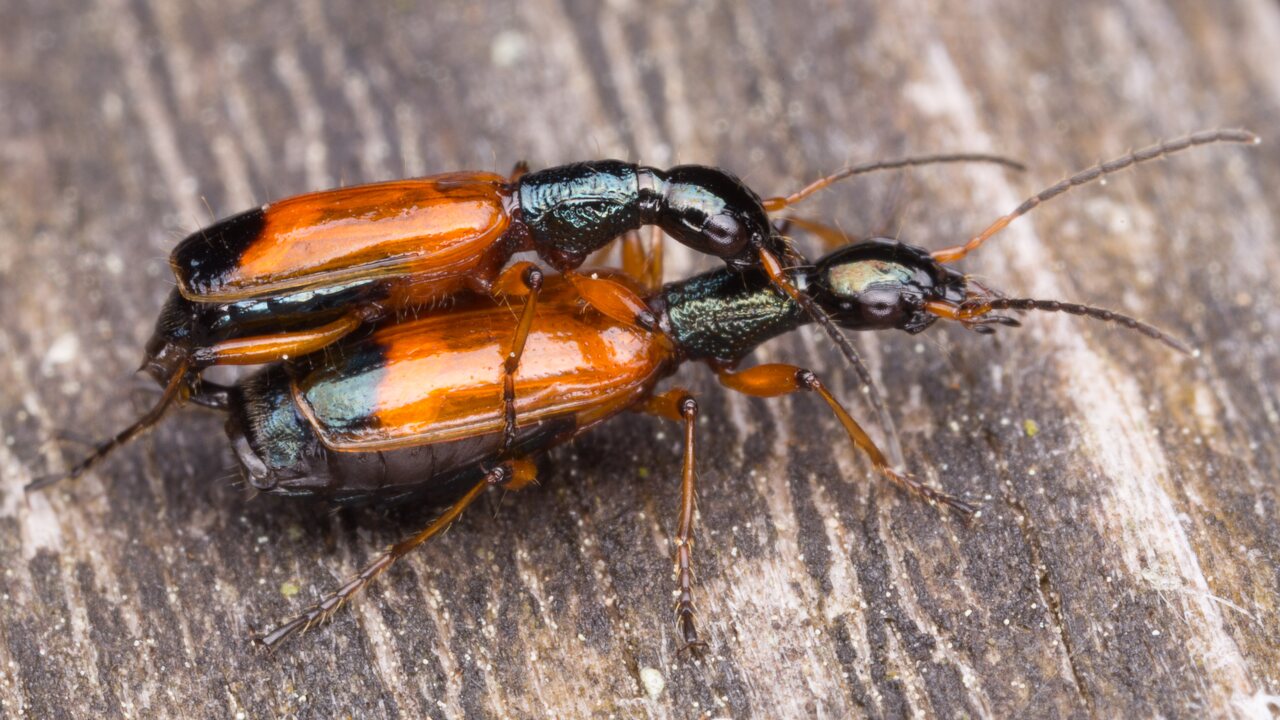
Odacantha melanura · žaliagalvis laibažygis
- Blåspidset rørløber
- Halskäfer, Sumpf-Halsläufer, Schlanker Halskäfer
- rytikiitäjäinen
- žaliagalvis laibažygis
- rietloopkever, rietsnoerhalsloopkever, Bonte rietloper
- kończyn
- vasslöpare
Odacantha melanura occurs throughout Europe except for many Mediterranean areas, extending north into the southern provinces of Sweden and the UK and east into Siberia. Adults are generally associated with well-vegetated margins of reedbeds and floating reed rafts and are present year-round; they overwinter in stems of rushes (Typha L.) and reeds (Phragmites Adans.) etc. and become active in March or April; they are diurnal and predatory, spending much of their time climbing stems in search of springtails and aphids, and almost always occur among reeds but may also be found among patches of sweet grass (Glyceria R.Br.) and other marginal vegetation, usually in small numbers. Reproduction occurs in the spring and larvae develop within hollow stems of reeds and rushes, new-generation adults occur from late summer and so adults may be present continuously, the previous generation usually persisting into July or August. Flight ability is unknown; in Central Europe adults are macropterous but in the north they have reduced wings and dispersion is thought to occur by climbing among stems.
Head black, shiny. Pronotum strikingly long and relatively narrow. Elytra yellow-orange with black tips; not covering the top of the abdomen. Legs and first antennal segments yellow-orange; knees and feet darkened.
‥
0 comments
Add a comment